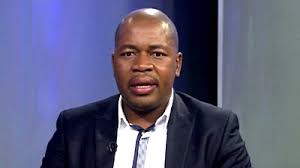'I was scared for my life' – man who was forced into coffin
2016-11-16 12:22
Jeanette Chabalala, News24
The two men accused of forcing a black man into a coffin (Jeanette Chabalala, News24).
Video
WATCH: Fury outside court as coffin assault suspects appear
2016-11-16 11:00
Two Middelburg men accused of kidnapping a man and forcing him into a coffin will remain in custody until January 2017.WATCH
Middelburg – Victor Mlotshwa, the man who was beaten and placed into a coffin by two men in Middelburg, said he feared for his life during the ordeal.
"They beat me up, tied me and put me into a coffin," Mlotshwa said outside the Middelburg Magistrate's Court, where the two alleged culprits appeared.
"I was scared for my life. They accused me of trespassing [on] their farm and they started beating me up. There was a foot path there and I decided to use it.
"The next thing, there was a grave and then a coffin. There was nothing I could do because the other man had a gun," he said.
Theo Jackson and Willem Oosthuizen abandoned their bail bid on Wednesday.
Packed to capacity
The court gallery was packed to capacity with members of the community and different political parties.
Dressed in his ANC T-shirt, Mlotshwa sat a row behind the alleged racists.
The case has been postponed to January 25 while Jackson and Oosthuizen remained in custody.
Prosecutor Rean Lourens opposed bail. He said it was not in the interest of the community that the two be granted bail.
The incident happened on August 27.
Mlotshwa's brother, Thobile, said they were not aware of the incident until recently.
"He didn't have evidence to prove what had happened, it's only two weeks back that he decided to open the case. He didn't think anyone would believe him," he said.
YouTube video
Mlotshwa's assault took place at the JM de Beer Boerdery, next to the Komati power station in Mpumalanga.
In a 20-second video of the incident, which was posted on YouTube on November 7, one man, speaking in Afrikaans, forces Mlotshwa into a coffin and threatens to pour petrol on him.
Members of the ANC, DA and EFF protested outside court, holding placards, some of which read: "Life sentence for this racists" and "Racism must fall".
The ANC and EFF held two opposing gatherings, with their own stages, several metres from each other outside the court.
Mlotshwa joined the ANC on its stage, while addressing supporters.
Provincial ANCYL deputy president Desmond Moena said the EFF were "political prostitutes" and that Mlotshwa belongs to them.
The EFF said the other political parties would not have known about the case, were it not for them. The party also criticised the lack of restraints on Jackson and Oosthuizen when they appeared.


 In an article reflecting on the events of the State of the Nation address, ANC secretary-general Gwede Mantashe correctly noted that the media and many other commentators overly focused on the disruptions in Parliament and paid little attention to the contents of the speech.
In an article reflecting on the events of the State of the Nation address, ANC secretary-general Gwede Mantashe correctly noted that the media and many other commentators overly focused on the disruptions in Parliament and paid little attention to the contents of the speech.